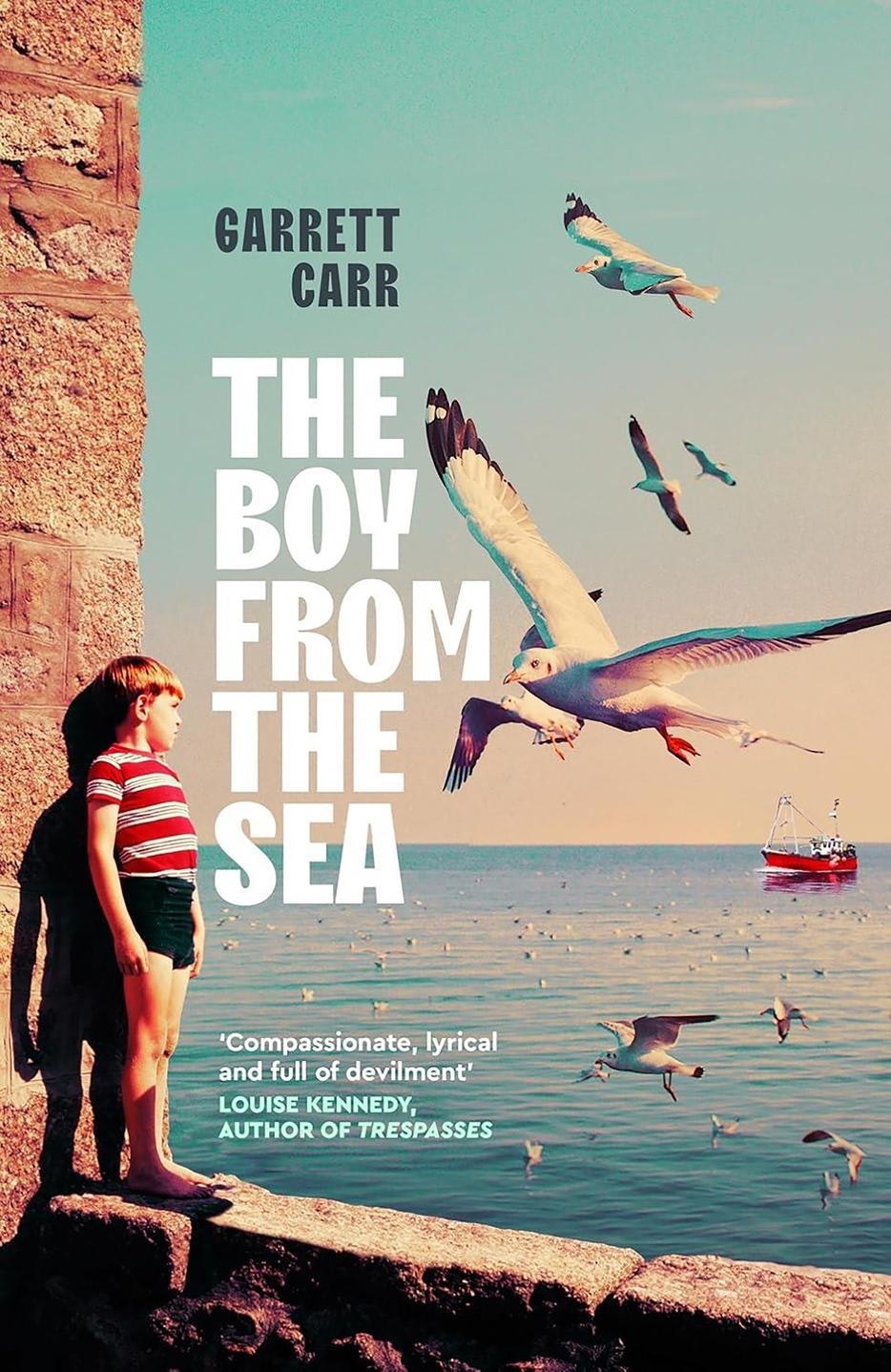This article is taken from the March 2025 issue of The Critic. To get the full magazine why not subscribe? Right now we’re offering five issues for just £10.
A week is a long time in politics, but a decade is a blink of the eye in literature. In 2016, the British novelist David Szalay (pronounced Zoll-OY, more or less) had a breakthrough hit with his Booker-shortlisted novel All That Man Is. Szalay had always been a protean writer — his previous books were a satire, a romance and a thriller — but All That Man Is showed new range with its thematically linked scenes of masculinity at different ages, via different characters. So it’s a surprise that his first novel in nine years is, in one sense, more of the same: masculinity at different ages, but this time using the same character throughout.
Flesh, as the title suggests, is about the life of the body. The central character is a Hungarian boy István, who is 15 years old at the start of the book and moving from innocence to experience, when an older neighbour, whom he helps with her shopping, decides to take him in hand — or thereabouts. “Her mouth slides off him. Her eyes are shut. So is her mouth — she breathes through her nose.”
This is the start of a relationship which István doesn’t really understand — he incurs the woman’s wrath by telling her he loves her, and things spiral dramatically down from there. But this is a novel not of continuum but of snapshots, so we shoot forward several years, then several years more. István drifts — from institution, to army, to nowhere in particular, all the whilst covering his ignorance with bravado and blankness — and seems the passive receptor of his fate rather than the hero of his own story.

Only when he ends up in hospital, having punched a door for no clear purpose, does this change. The doctor treating his injured hand turns out to have been in István’s year at school. “Ten years ago he and this doctor were the same, István thinks. They were the same. And now the doctor’s a doctor and he’s … whatever he is.”
This realisation kick-starts something in István, and the next time we see him he’s living in London, working in security — a role where his body does the work. So it goes, and England — land of opportunity! — is kind to him, enabling István to move up in the world or at least provide security services to a better class of chancer. He begins to read books called things like Playing to Win, and his idea of a romantic afternoon is a visit to the BMW museum.
This is a big book, and there’s too much going on even to nod at all of it, but themes develop. István is fascinating because he’s so boring. He speaks in phatic utterances — “Not really”, “Oh yes” — and when he answers a question with “It’s okay”, it can mean yes or no. We are rarely privy to his feelings, and his thoughts are deliberately — eloquently — inarticulate. (On Seroxat, István “seems less weighed down by everything or something”.) He seems irresistible to women: except the ones he’s attracted to. Again the body takes over, whilst the mind follows distantly behind.
Szalay is offering a sort of literary negative space, exploring how much can be conveyed by saying so little. This does and doesn’t work: the reader must complete the gaps — most of the major events in István’s life take place between chapters — which makes Flesh an active reading experience about a largely passive man. The pace of the story is fast, the narrative engaging. But the stasis of expression means it’s hard to read development into István’s character even when, at the end of the book, he is in his sixties.
Then again that may be the point: István’s particular kind of masculinity — strong and silent is the euphemism — limits change. The intensity of Szalay’s muted vision for him seems to say that this book resembles his previous novel in another way. It might be called All That Man Isn’t.
More ostentatiously charming — it’s not difficult — is Garrett Carr’s debut The Boy from the Sea, which offers a sort of Irish silver-tongued devilry somewhere between Sebastian Barry and Donal Ryan, though closer in spirit to the latter. The setting is County Donegal in 1973, where a baby boy has been found by the shore. “The tide brought him in,” says the man who found him. This being a novel of vibes rather than plausibility, fisherman Ambrose and his wife Christine take the boy in and name him Brendan.
Not everyone is happy with this. Christine’s parents, for example: “A child that could’ve come out of anywhere!” And, more significantly, Ambrose and Christine’s biological son Declan, who “couldn’t let go of the idea that Brendan was an interloper in his family”.

As the boys grow up together, the tension builds. Part of this seems pretty justified on Declan’s part: Brendan, celebrated as “the boy from the sea”, becomes insufferable with a messianic habit of offering blessings to the locals, even if these are bathetic. “May things not be too bad for you.” Other reasons, though, have the whiff of artifice, such as Ambrose and Christine giving Brendan the same birthday as Declan, ostensibly for simplicity but looking more like an authorial decision to drive Declan’s resentment.
This leads to other developments, and Carr is good at combining the micro with the macro: Declan starts to look like a bad ’un, committing unconscionable thefts, whilst the burgeoning Celtic Tiger brings in “alternative lifestylers” that Brendan settles in with. And late in the story, there’s a dramatic revelation — or the appearance of one — that threatens to upend even any fragile peace between the brothers.
All this is delivered in an affable choral narrative, as though from the viewpoint of the villagers collectively. “We were a hardy people, raised facing the Atlantic.” Carr’s stylistic approach is a broad-beamed welcome, with the air of a fireside chat or neighbours updating one another over the fence. “Some history must now be gone into,” is a typical opening.
it’s a winning charm and more appealing when so many novels adopt a characterless voice. But it comes with an inbuilt weakness: first because skipping between people — the collective narrator can see everyone’s thoughts — robs the story of the traditional tensions of a restricted one-character viewpoint. And it’s also hard to take the darker stuff as seriously as we should when it’s couched in a breezy tone: “So. Here’s what happened to the Dawn and her crew. The whole story,” begins one scene of a near-death experience.
Still, this is a book that asks us from the start not to get too bound up in the realistic. “Things were simpler in those days” — so don’t question it too much. I predict a good deal of readerly love for the boy from the sea and his creator too.
It seems remiss that this column, aiming to cover the au courant in fiction, has not yet reviewed a Japanese novel. In translated fiction in the UK, Japanese books represent a quarter of all sales and almost half of bestselling titles. Amongst the comfort reads about cats and coffee shops, there’s more literary stuff, though the marketplace is crowded with bandwagon-jumpers. Recent Japanese novels pitched to me for review include one author described as a “hugely popular Japanese fiction brand” and another the publisher calls “[our] first foray into the trend that is Japanese fiction”.

Amidst brands and trends, how do we identify the good stuff? One way is to look at prize winners, and so from the glut on offer, we select Junko Takase’s May You Have Delicious Meals, which won Japan’s prestigious Akutagawa Prize in 2022.
The story is set amongst the employees of a branding business and in particular one man, Nitani, and two women, Ashikawa and Oshio. Nitani is a utilitarian, who eats pot noodles and sees food as fuel. Oshio doesn’t get on with Ashikawa, who is seen as both weak and untouchable because of her frequent sickness absences.
When Ashikawa and Nitani start dating, it throws everything up in the air and unlocks the narrative to reflections on work and life, where food becomes a major tool for office — and personal — politics. It’s not always easy to tell whether the story is satirising banality or enacting it, as the characters riff gently on topics such as TV or trade homilies.
The problem with May You Have Delicious Meals is that all its elements — the salaryman (or woman) story, the highlighting of women’s positions in Japanese society, even the inevitable cat — have been done better by other authors, whether in Sayaka Murata’s surreal flights of fancy, Hiromi Kawakami’s blend of the flinty and the charming or Yuko Tsushima’s radiant imagery.
There’s nothing wrong with it, but not much excitingly right either. Perhaps publishers are aware of the dangers of saturation in Japanese fiction: already the canny are looking elsewhere, with South Korean novels on the up. If we take a break from J-lit for a year or two, the best titles will be waiting for us on the other side. I doubt this will be one of them.







